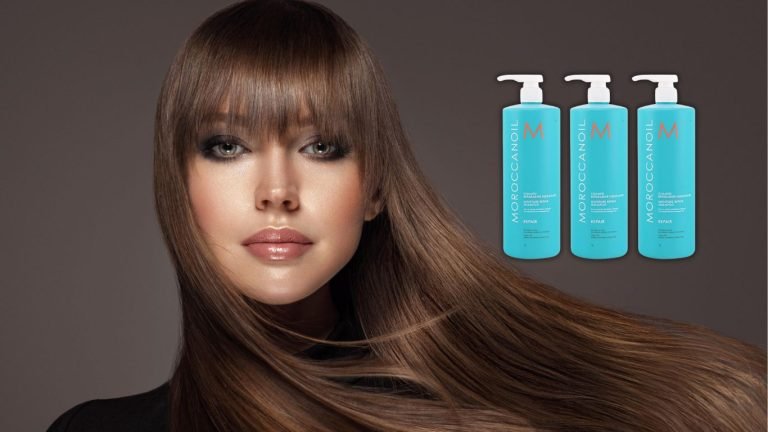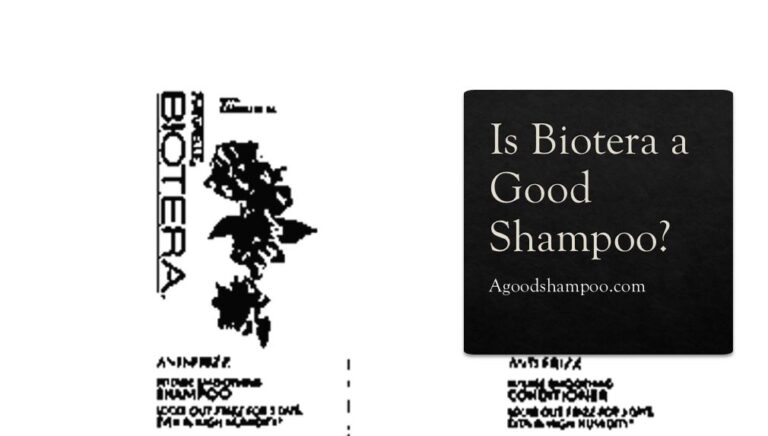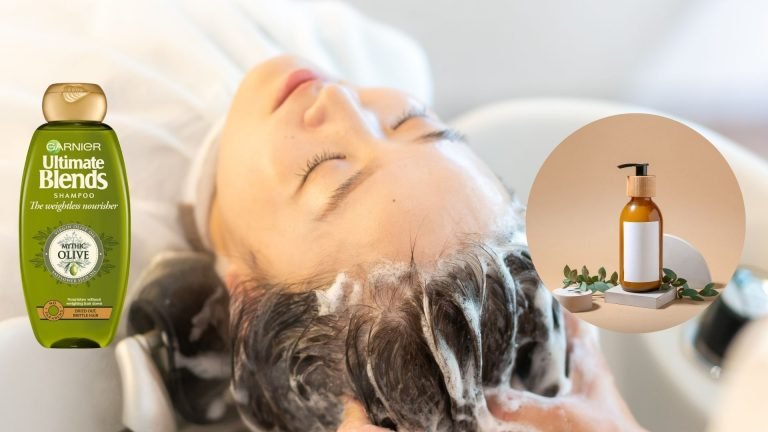Is Baking Soda Shampoo Good for Oily Hair? Expert Review
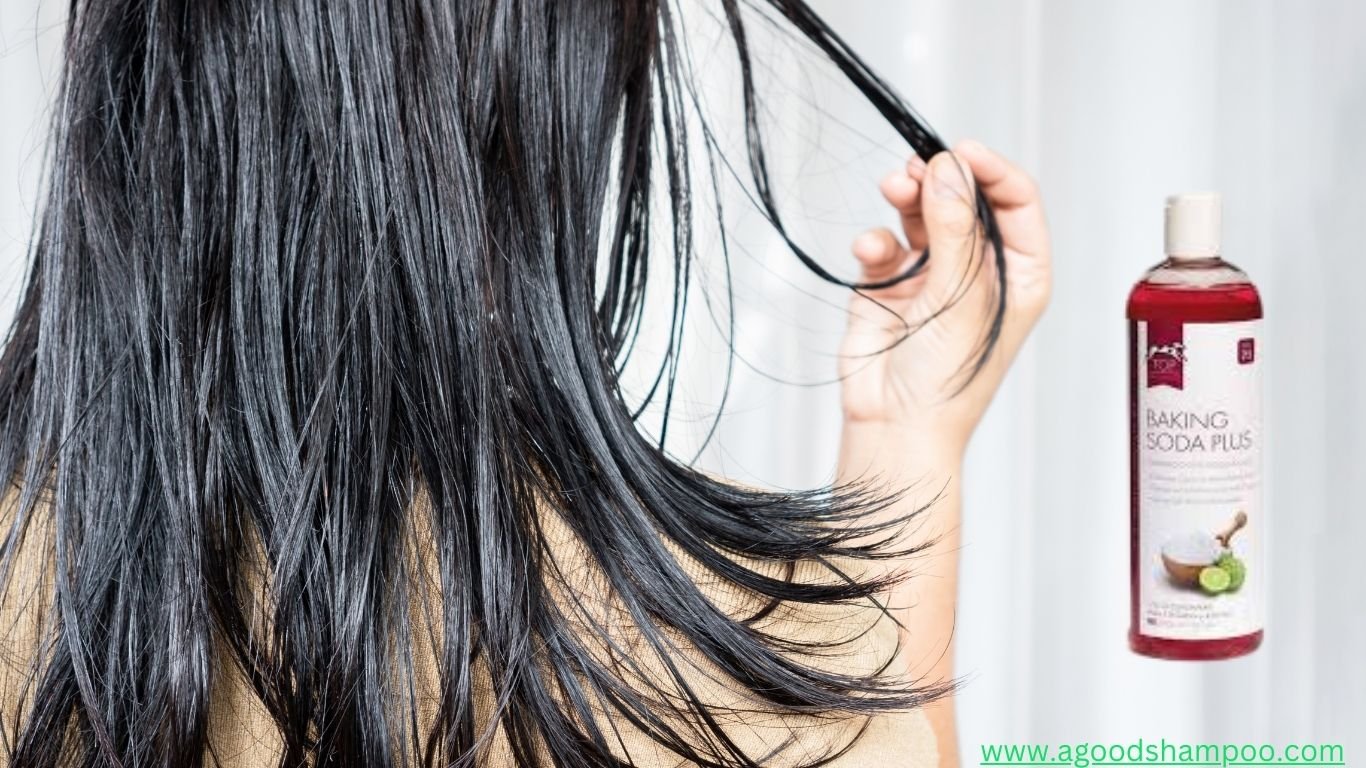
If you’ve ever dealt with oily hair, you know the struggle. You wash your hair in the morning, and by the evening, your roots look greasy again. That heavy, weighed-down feeling can be frustrating, and it’s no surprise people start hunting for home remedies that promise quick fixes. One of the most talked-about options is baking soda shampoo. Some people swear by it, saying it cuts through grease and gives the scalp a fresh reset. Others warn it’s too harsh and can cause more damage than good.
So, is baking soda shampoo really good for oily hair, or is it another internet myth? Let’s go deep into what science says, what real-world results look like, and whether it deserves a spot in your routine.
Why Baking Soda Became a Hair Trend
The appeal is simple. Baking soda, or sodium bicarbonate, is cheap, easy to find, and known for its strong cleansing properties. People already use it in kitchens, for cleaning, and even in DIY skincare scrubs. So when oily hair enters the picture, it feels natural to think: “If it can clean my sink, surely it can clean my scalp.”
And in the beginning, it often works. Because baking soda is alkaline, it lifts grease and buildup off the scalp fast. After one rinse, your hair may feel lighter, fresher, and almost squeaky clean. That instant gratification is what gets people hooked. But the story doesn’t end there.
What Science Says About Baking Soda and Hair
Here’s where things get tricky. Hair and scalp health depend a lot on pH balance.
Healthy scalp pH: Around 4.5 to 5.5 (slightly acidic)
Baking soda pH: Around 9 (highly alkaline)
That difference matters. Your scalp’s acidity helps keep the cuticle layer of hair smooth and protects your natural microbiome (the good bacteria that live on your skin). Throwing baking soda into the mix means you’re exposing your hair to something that’s almost double the normal pH it’s used to.
Studies show that alkaline products can raise the hair cuticle, making strands more porous. Over time, this can lead to frizz, dryness, and breakage. So yes, baking soda can clean oil, but it doesn’t stop there, it also disrupts the scalp’s natural balance.
Does Baking Soda Help Oily Hair?
In the short term, yes. Baking soda strips away sebum (the natural oil your scalp produces) quickly and thoroughly. If your hair feels greasy all the time, you’ll definitely notice a difference after one wash.
But here’s the catch: your scalp is smart. When it senses oil is being stripped too aggressively, it often reacts by producing even more oil to make up for it. So while you might feel oil-free for a day, the rebound greasiness can come back worse the next.
This is one reason many people who use baking soda regularly complain their hair becomes more uncontrollable, not less.
How Often Should You Wash Your Hair With Baking Soda?
If you absolutely want to try it, limit it to occasional use only. Think of it as a scalp detox treatment rather than a daily shampoo.
Once every 2–3 weeks is usually the maximum safe frequency.
Always follow with an acidic rinse (like diluted apple cider vinegar) to help rebalance pH and smooth the cuticle.
But again, this should never replace a gentle, balanced shampoo in your routine.
Is Baking Soda Shampoo Good for Hair in General?
The blunt truth: not really. While it can clean, it isn’t formulated with hair health in mind. Shampoos are carefully balanced with surfactants, conditioning agents, and stabilizers to both clean and protect. Baking soda is just one raw ingredient, it doesn’t offer moisture, proteins, or protective elements.
Dermatologists generally do not recommend it as a hair-care staple.
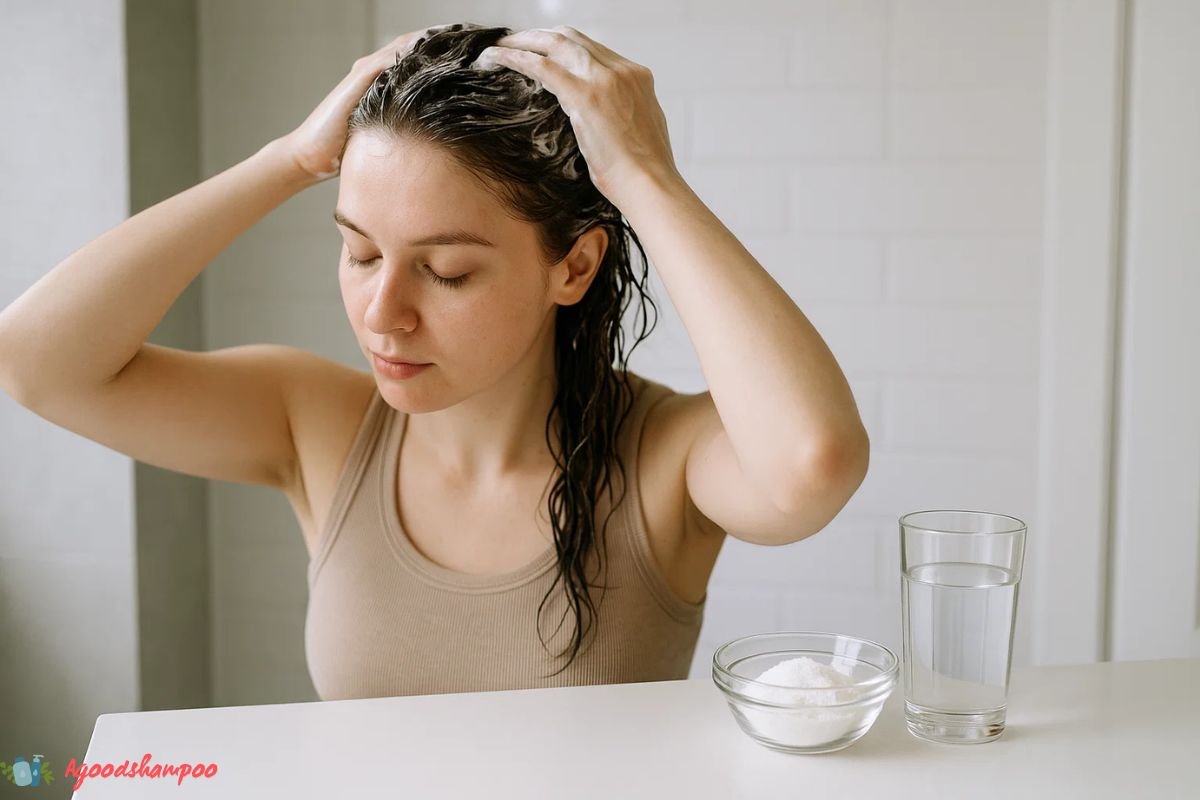
Side Effects of Baking Soda on Hair
If overused, baking soda can cause:
Dryness and brittleness from raised cuticles.
Breakage especially in already fragile or chemically treated hair.
Scalp irritation including itching, redness, or even small abrasions.
Color fading if you have dyed hair, since the alkalinity strips pigments.
One clinical study published in the International Journal of Trichology highlighted that products with a pH higher than 5.5 increase the risk of cuticle damage and frizz. That puts baking soda far outside the safe zone.
Real-World Experiences
If you browse hair forums or social media, you’ll see split opinions. Some people say it saved their oily scalp, while others warn it ruined their hair.
A 2018 survey reported that over 65% of people who tried baking soda on hair stopped within two months, citing dryness and roughness as the main reasons.
Only around 20% said they still use it occasionally, mostly as a clarifying rinse rather than a shampoo replacement.
It really comes down to hair type. If your hair is thick, coarse, and very oily, you might tolerate baking soda better than someone with fine, fragile strands.
Who Might Benefit from Baking Soda Shampoo?
People with extremely oily scalps needing a once-in-a-while reset.
Swimmers dealing with chlorine buildup.
Those with product-heavy routines who want to strip styling residue.
Even then, moderation is everything.
Who Should Avoid Baking Soda Shampoo?
Anyone with colored or chemically treated hair
People with naturally dry or curly textures
Sensitive scalps or eczema sufferers
Those prone to frizz and breakage
Safer Alternatives for Oily Hair
If you’re struggling with oily roots, there are much gentler, safer options:
Clarifying Shampoos – Formulated to deep clean without destroying the scalp barrier. Look for ones with tea tree oil, charcoal, or salicylic acid.
Balancing Shampoos – Designed for oily scalps and dry ends. They regulate sebum production while still conditioning.
Scalp Scrubs – With exfoliating agents like salt or sugar to lift away buildup naturally.
Apple Cider Vinegar Rinse – Slightly acidic, so it helps rebalance pH after heavy cleansing.
Quick Fact Box
Baking soda pH: 9
Healthy scalp pH: 4.5–5.5
Recommended frequency (if used): once every 2–3 weeks
Main risk: dryness, breakage, irritation
Best used with: acidic rinse afterward
Final Thoughts: Should You Use Baking Soda Shampoo for Oily Hair?
Here’s the bottom line. Baking soda can temporarily make oily hair feel clean and light, but it comes with risks. Its high alkalinity can throw your scalp off balance, leaving you with dryness, irritation, or even more oil in the long run.
If you’re desperate for a quick fix, it might be okay as a rare clarifying treatment. But as a regular shampoo? No, it simply doesn’t support healthy hair.
Your best bet is to use a shampoo formulated for oily scalps, with ingredients that balance sebum production without stripping your hair’s natural defense system. Trust me, your hair will thank you.

Carolina Herrera: Cosmetics specialist & Hair Analyst. Specializing in hair treatments, Carolina provides thorough reviews and advice on choosing the best products for damaged or treated hair.

